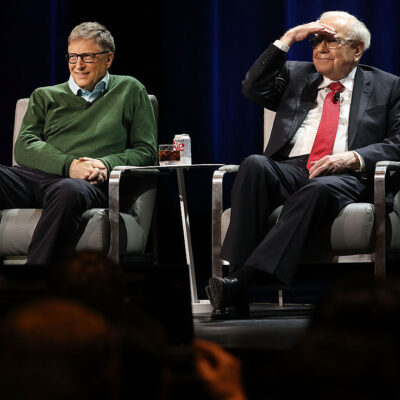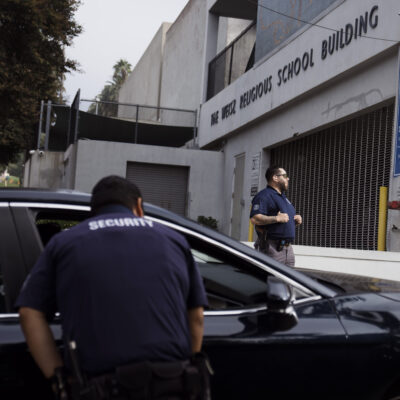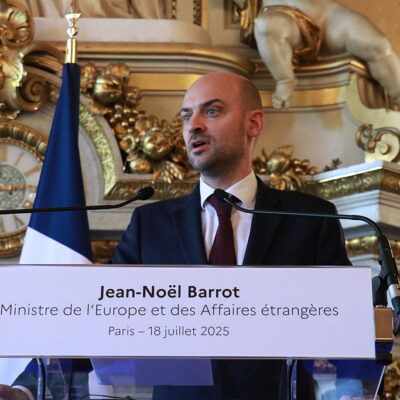Opinion
MIXED MESSAGES
Corporate silence in a time of war: Global corporations walking the Israel tightrope
In the summer of 2018, I was working with Apple as an external vendor, supporting the company’s strategic communications work in Israel. At that time, the Israeli Knesset had approved a new surrogacy law that extended the right to use surrogates to single women, but not to single men or same-sex couples. Apple publicly decried the new legislation, pledging to stand with its employees in Israel. Apple wasn’t alone: Hundreds of companies, including many of the world’s largest corporations with operations in Israel, came out with force against the law. Microsoft and Facebook both announced they would provide generous grants for any employee turning to surrogacy, “regardless of sex, marital status or sexual orientation,” and numerous multinational companies permitted or encouraged their employees to join the nationwide strikes against the legislation.
Seven years later, that vocal corporate solidarity feels like a relic of a different era.

Martin Barraud/Getty Images
Illustrative.
On Friday, June 20, a ballistic missile fired from Iran deliberately targeted Microsoft’s offices in the southern Israeli city of Beersheva, causing widespread damage. Magen David Adom medics counted six light injuries; photographs of the smoldering façade raced around the globe. The response from Microsoft was public silence. There was no acknowledgement of the missile strike. No employee-centered statement to show concern, and no external statement to show strength. No post-crisis reflection reaffirming its commitment to standing with its employees in times of crisis.
The absence of even the most basic public message of solidarity was jarring. For many in Israel’s technology community, in a week when coding was interrupted by air-raid sirens, corporate silence spoke louder than the explosion itself.
But Microsoft’s reticence to issue a public response should not have come as a surprise, nor was it an isolated case.
More than 450 multinationals run R&D hubs in Israel. In the immediate aftermath of the Oct. 7 attacks, many of these companies issued carefully worded statements condemning the attacks. But as the months passed — and their Israeli employees continued to face relentless trauma, rocket and missile fire and national upheaval — most of these companies fell silent. Ongoing, public support has been rare, and conspicuously cautious.
The toxic polarization surrounding Israel has forced the world’s largest companies to walk a narrow tightrope when it comes to its public facing support of its Israeli employees and activity.
Consider the companies whose own employees were taken hostage on Oct. 7, 2023. Each chose a different path of engagement. Amazon claims to have worked “quietly” to secure the release of employee Sasha Troufanov; Nvidia has spoken openly about its desire to see employee Avinatan Or freed from captivity. Meanwhile, PepsiCo has said nothing about its employee, Guy Gilboa-Dalal, who works for Pepsi’s Israeli subsidiary SodaStream and remains in captivity in Gaza until today, where he is being starved and held in chains.
As for Microsoft, despite its public silence surrounding the missile strike, the company recently fired two employees who protested the company’s role supplying AI technology to the Israel Defense Forces.
Roughly a week after the Oct. 7 attacks, Apple CEO Tim Cook posted a statement of support and sympathy for the “victims,” but the company has otherwise remained publicly silent about the conflict. At the same time, Apple has publicly shared that its Israel R&D center has played a crucial role in the development of Apple’s Vision Pro headset, the first time that an Israeli executive has spoken at length and in depth about the contributions of the local team to Apple’s global product lineup.
This mixed messaging and disconnect is unsettling. It sends a confusing signal to the very engineers, designers and programmers upon whom these companies rely and is another source of stress for a tech ecosystem that has been battered over the last several years. Thousands of technology employees remain deployed on the front lines; thousands more have permanently relocated outside the country, and the overall tech sector has been forced to make considerable layoffs.
Israel’s tech sector is resilient by necessity. Its engineers code during air-raid sirens, manage global products while family members are on the front lines and continue to deliver innovation under enormous pressure. Multinational corporations have long reaped the benefits of this grit. But resilience has its limits.
If global corporations wish to keep tapping Israel’s unmatched technological edge, they must be willing to stand visibly with the people behind it. Not only in the boardrooms and during boom cycles, but in moments of crisis — when solidarity is no longer symbolic, but foundational.
Standing with employees isn’t just an act of moral leadership; it’s a business imperative. And when it comes to Israel, every global corporation that has in part built its future atop the code, creativity and courage that the Israeli ecosystem continues to provide, has a responsibility to stand openly and unequivocally with its people.
Matthew Krieger is the founder and CEO of Gova10, a strategic communications company.













